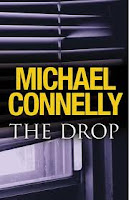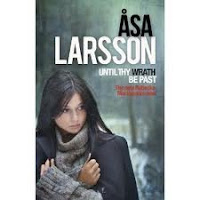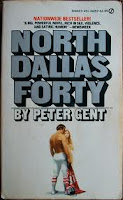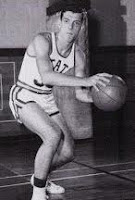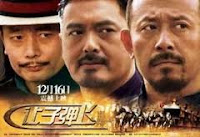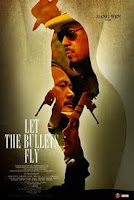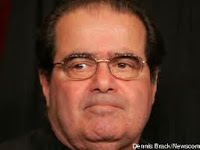 LATIN LOVE AT THE LONDON FILM FESTIVAL
LATIN LOVE AT THE LONDON FILM FESTIVALLas Acacias (Argentina)
Karen Cries On The Bus (Columbia)
An Argentinian truck driver picks up a load of lumber in Paraguay. On his way back to the border, he stops and waits for a woman whom his boss has paid him to take with him to Buenos Aires. When the woman arrives, she is carrying an infant daughter, which was not part of the deal. But it was his boss' request. They drive on, he nearly leaves her behind, but finally he gets her across the border, takes her all the way to the capital, and slowly warms to her and her daughter. They get to Buenos Aires, where she's greeted warmly by her relatives, and goes inside. He waits. Eventually she comes back out. They agree they might meet. He drives away.
That's all that happens in Las Acacias, at least on the surface of things. But as a study in the hesitant return of a shut-down man to humanity, in the power of optimism, and as a slow-building maybe love story, it is as touching and convincing a film as I have seen in some time. Yes, it is a two-hander, and yes, it is a road movie, and we know how these elements constitute almost a special genre in independent film. But a number of things make Las Acacias stand out from such works—and justified fully its winning the Sutherland Award, for 'most original and imaginative first feature' at the London Film Festival.
The most important is the way director Pablo Giorgelli uses the road not as a device, but as a metaphor, for the narrow confines of truck driver Ruben's life. He is more than a loner, or a creature of the road; he exists within the boundaries of the highway, within the claustrophobic spaces of his truck's cab. His links are to his sister, to whom he delivers a birthday present many months late, and to his son, who exists in a picture, taken the first time he ever met him, when the boy was eight. He is living in an existential wilderness,
 his rituals of gear shifting and drinking mate, guarani, or fizzy water are the sort of rituals of theatre of the absurd.
his rituals of gear shifting and drinking mate, guarani, or fizzy water are the sort of rituals of theatre of the absurd.Into this existence comes Jacinta and her daughter, added to his truckload of acacias. There are parallels: he has a son he doesn't see and a mother who's never mentioned; she has a daughter she carries with her and her bags, and says the baby has no father. But she has hope; for her the road is simply a way of getting from one place to a more promising alternative, one where she and her daughter will have a better future.
Eventually, Ruben's gruff, hardened exterior begins to bend, and it is here that German DeSilva's performance is extraordinary. He shows the way Ruben has internalised the strict boundaries of his world, he implies the
 self-protection that forms the foundation of that attitude. And he shows the hesitation, the almost self-bewilderment, with which Ruben begins to emerge, dares to take the chance. Hebe Duarte, as Jacinta, has to play straight-man at times, to this impassivity, which she does with great sensitivity—and the beauty of the film is we watch waiting for the worst to happen, for the fragility under Ruben's hard exterior to crack, and for Jacinta to pay the price. But it doesn't happen, and the film ends on a small note of hope, even as Ruben drives his truck away, still shifting gears. It was probably my favourite of all the films I saw in the Festival, and it's rare I find myself in such whole-hearted agreement with the LFF awards.
self-protection that forms the foundation of that attitude. And he shows the hesitation, the almost self-bewilderment, with which Ruben begins to emerge, dares to take the chance. Hebe Duarte, as Jacinta, has to play straight-man at times, to this impassivity, which she does with great sensitivity—and the beauty of the film is we watch waiting for the worst to happen, for the fragility under Ruben's hard exterior to crack, and for Jacinta to pay the price. But it doesn't happen, and the film ends on a small note of hope, even as Ruben drives his truck away, still shifting gears. It was probably my favourite of all the films I saw in the Festival, and it's rare I find myself in such whole-hearted agreement with the LFF awards.Karen Cries
 On The Bus exchanges types of vehicles, opening with Karen, indeed, sitting on a bus in tears. It is the story of a woman who leaves her husband in search of herself. Karen finds herself with few skills and little money, with a room in a shabby boarding house, and quickly reduced from optimistic job-seeking to begging at the bus station and stealing food and basics. It's also a familiar tale, and this Columbian film stays truer to the tropes than Las Acacias; the husband is a charming boor, Karen finds a somewhat iffy friend with a heart of gold, and she meets a man who is much closer to her ideal—all of it very predictable, and not really going anywhere new. But Angela Carrizosa Aparicio is absolutely brilliant as Karen, flashing intelligence beneath her seeming helplessness in the face of life on her own in the big city. The way she adjusts, or doesn't, to the filthy and barely working communal shower in her boarding house acts as a metaphor for that adjustment, but even better is the way she appears to first shrivel and then blossom, and sometimes both, almost a more demonstrative version of Ruben. In fact, her performance is yang to da Silva's yin; were the Festival presenting best actor and actress awards, those two would likely have been my picks.
On The Bus exchanges types of vehicles, opening with Karen, indeed, sitting on a bus in tears. It is the story of a woman who leaves her husband in search of herself. Karen finds herself with few skills and little money, with a room in a shabby boarding house, and quickly reduced from optimistic job-seeking to begging at the bus station and stealing food and basics. It's also a familiar tale, and this Columbian film stays truer to the tropes than Las Acacias; the husband is a charming boor, Karen finds a somewhat iffy friend with a heart of gold, and she meets a man who is much closer to her ideal—all of it very predictable, and not really going anywhere new. But Angela Carrizosa Aparicio is absolutely brilliant as Karen, flashing intelligence beneath her seeming helplessness in the face of life on her own in the big city. The way she adjusts, or doesn't, to the filthy and barely working communal shower in her boarding house acts as a metaphor for that adjustment, but even better is the way she appears to first shrivel and then blossom, and sometimes both, almost a more demonstrative version of Ruben. In fact, her performance is yang to da Silva's yin; were the Festival presenting best actor and actress awards, those two would likely have been my picks.Writer/director
 Gabriel Rojas Vera handles the men in the story brilliantly too: her husband Mario makes the right gestures, but we soon she exactly why she lost in marriage to him, and when she meets a more sensitive and encouraging man, he reveals, to her and to us, the almost ingrained macho attitude which is at the core of what she must overcome to find herself. If it's a little black and white in its juxtapositions, and if her new-found friend is even more a caricature than the men, and her 'conversion' a bit forced, Maria Angelica Sanchez's performance plays off Carrizosa's restraint very well.
Gabriel Rojas Vera handles the men in the story brilliantly too: her husband Mario makes the right gestures, but we soon she exactly why she lost in marriage to him, and when she meets a more sensitive and encouraging man, he reveals, to her and to us, the almost ingrained macho attitude which is at the core of what she must overcome to find herself. If it's a little black and white in its juxtapositions, and if her new-found friend is even more a caricature than the men, and her 'conversion' a bit forced, Maria Angelica Sanchez's performance plays off Carrizosa's restraint very well.  What's even more impressive is the way scenes are staged, the use of locations, and the way they are shot, with the photography reflecting and amplifying Karen's emotions, draw the audience into her dilemma, and though it is very much a womens' film, none but the Marios in the crowd would fail to be drawn is as well. The film ends as it began, but now Karen is watching another woman on the bus in tears...there are eigh million stories in the naked Bogota, and hers will be another of them.
What's even more impressive is the way scenes are staged, the use of locations, and the way they are shot, with the photography reflecting and amplifying Karen's emotions, draw the audience into her dilemma, and though it is very much a womens' film, none but the Marios in the crowd would fail to be drawn is as well. The film ends as it began, but now Karen is watching another woman on the bus in tears...there are eigh million stories in the naked Bogota, and hers will be another of them.Las Acacias (Argentina-Spain 2011) directed by Pablo Giorgelli, written by Girogelli and Salvador Roselli
Karen Cries On The Bus (Columbia 2011) written and directed by Gabriel Rojas Vera
both premiered at BFI London Film Festival


